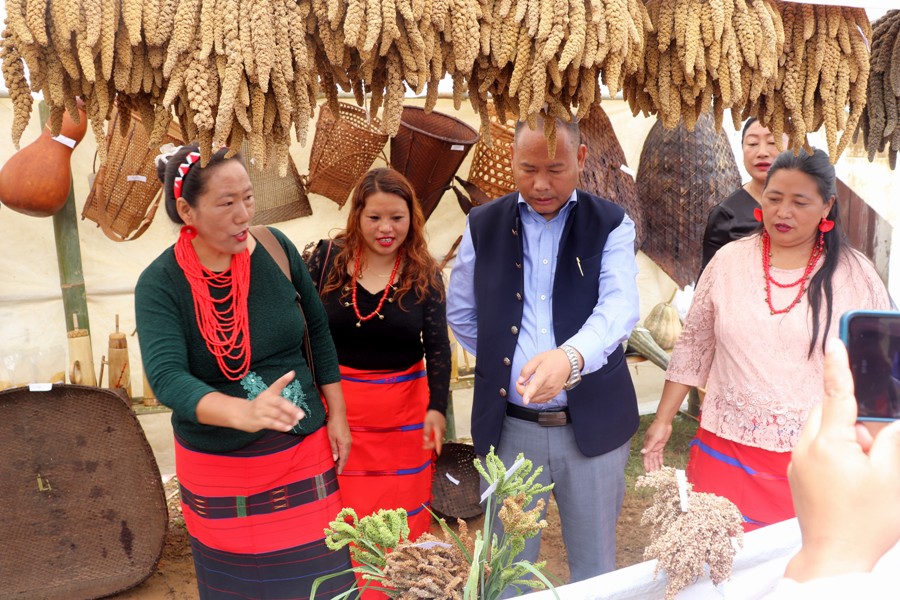Over 300 participants gathered in Shamator for the 5th Millet Festival celebrating millet revival, traditional seeds, and sustainable farming practices.
Published on Aug 7, 2025
By EMN
Share

DIMAPUR — The 5th Millet Festival was celebrated on August 6 in Shamator town, bringing together over 300 participants from six villages and eleven wards.
According to a press release, themed “Millet: ancient grain, enduring lives”, the festival was organised by the Self Employed Women’s Association (SEWA) Shamator in collaboration with the North East Network (NEN) and Millet Network of India (MINI).
Keoshu Yimkhiung, MLA and Advisor to the Department of Youth Resources and Sports, attended the occasion as the special guest.
In his address, he praised the efforts of SEWA, NEN Nagaland, and the wider community for taking active steps in restoring millet’s relevance in local agricultural practices. He highlighted the two-decade decline in millet farming and shared folk stories illustrating changes in traditional agriculture.
He said that millet was once revered as the 'mother of all crops', symbolising sustenance, culture, and resilience. Millet harvests were deeply celebrated in the Yimkhiung community. While awareness of millet’s importance has grown, he urged the community to take ownership of millet's revival without relying on external support.
Also read: Millet festival in Shamator calls to revive the crop
Governor La Ganesan and Chief Minister Neiphiu Rio extend Metümnyo greetings to Yimkhiung community
He also encouraged reclaiming sustainable farming traditions and reviving other endangered crops such as indigenous cotton.
Chubatemjen, Deputy Commissioner of Shamator, emphasised the cultural and ecological significance of preserving traditional crops such as millet. He encouraged communities to integrate sustainable farming practices with cultural heritage, promoting intergenerational knowledge transfer.
Esther, a member of the Shamator Millet Sisters, shared her experience and commended SEWA Shamator and the Millet Sisters for their efforts in identifying and reviving traditional, long-lasting seed varieties, with support from NEN and the Millet Network of India.
She emphasised millet’s vital role in ensuring food security, especially during times of scarcity, and urged government departments, village councils, and farmers to extend their support to millet revival initiatives.
Other highlights of the festival included a farmers’ market, seed and food exhibitions, a millet-eating competition, and cultural performances by the Thopün Troupe and Shamator Town Choir.